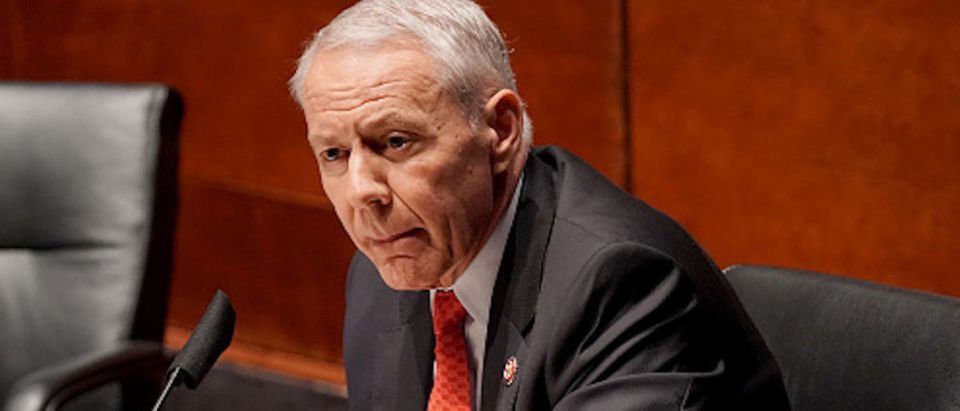Four House Republicans on the Republican Study Committee (RSC) introduced four pieces of legislation Thursday with the goal of saving taxpayers money on education. Each bill focuses on different topics that the lawmakers believe will help Americans across the country.
The Daily Caller first obtained the bills which were introduced by Colorado Rep. Ken Buck, Pennsylvania Rep. Fred Keller, Virginia Rep. Ben Cline, and Pennsylvania Rep. Lloyd Smucker. The bills are focused on reforming American higher education. The RSC members’ bills focus on saving American taxpayers from subsidizing tuition costs, making sure students receive a good education, and cutting Diversity Equity and Inclusion (DEI) slush funds.
Smucker’s bill is titled the 529s for Industry Driven Apprenticeships Act and would expand eligible expenses for 529 plans to include industry-recognized apprenticeship programs (IRAPs) and other work-based learning programs. 529 plans are “tax-advantaged savings plans designed to encourage saving for future education costs,” according to the SEC.
Currently, 529 plans can only be used on expenses for registered apprenticeships. This legislation put IRAPs on the same page.
Another bill introduced is the PSLF Fairness Act, introduced by Buck. The legislation would limit Public Service Loan Forgiveness eligibility for borrowers of Federal student loans with incomes that exceed $173,000 or the top 10% of income earners in the U.S.
“College debt forgiveness is a massive wealth transfer from the working class to those who had the opportunity to pursue higher education. It’s regressive and, at a time of skyrocketing interest rates on government debt, it’s flat-out financially irresponsible,” Buck told the Daily Caller before introducing the legislation.
READ THE BILLS HERE:
FWS Improvement Act
(DAILY CALLER OBTAINED) — … by Henry Rodgers
Responsible Taxpayer Funding for Research Act
(DAILY CALLER OBTAINED) — … by Henry Rodgers
529 IRAP Expansion Act
(DAILY CALLER OBTAINED) — … by Henry Rodgers
PSLF Fairness Act:
(DAILY CALLER OBTAINED) — … by Henry Rodgers
The third bill is the FWS Improvement Act, which was introduced by Keller. The bill would make reforms to ensure that students receiving assistance from the federal work-study are getting career experience that will help them in their field of study. (RELATED: GOP Releases Budget Highlighting Need For Oil, Gas Production And Countering Biden Climate Agenda)
“Students should have streamlined access to job opportunities and flexibility to explore career interests while still in school. As many employers across the nation struggle to find qualified workers, this legislation will more effectively target the federal work study program toward matching students to those in-demand careers and help fill the skills gap,” Keller told the Caller.
The final bill is the Responsible Taxpayer Funding for Research Act, introduced by Cline. His bill would put in place a market rate system for indirect costs associated with research grants. (RELATED: EXCLUSIVE: Internal Memo From Republican Rep. Jim Banks Slams Biden’s Spending Plan As ‘Phase One Of The Green New Deal’)
“Ensuring accountability in the federal grant-making process should be a top priority for Congress,” Cline told the Caller.
“The cost of academic research projects has grown over time, with over $40 billion in taxpayer-funded grants being awarded by federal agencies. While many higher education institutions use their grant funding appropriately, Congress must ensure that the money received is not used for university slush funds promoting woke, radical ideologies, but rather is used for legitimate and important research-oriented purposes. I am pleased to introduce the Federal Grant Accountability Act to inject the market and mandated transparency into the federal grant-making system,” he added.
The lawmakers believe the “current trajectory of higher education is unsustainable,” and hope others will join them in passing the four bills.


